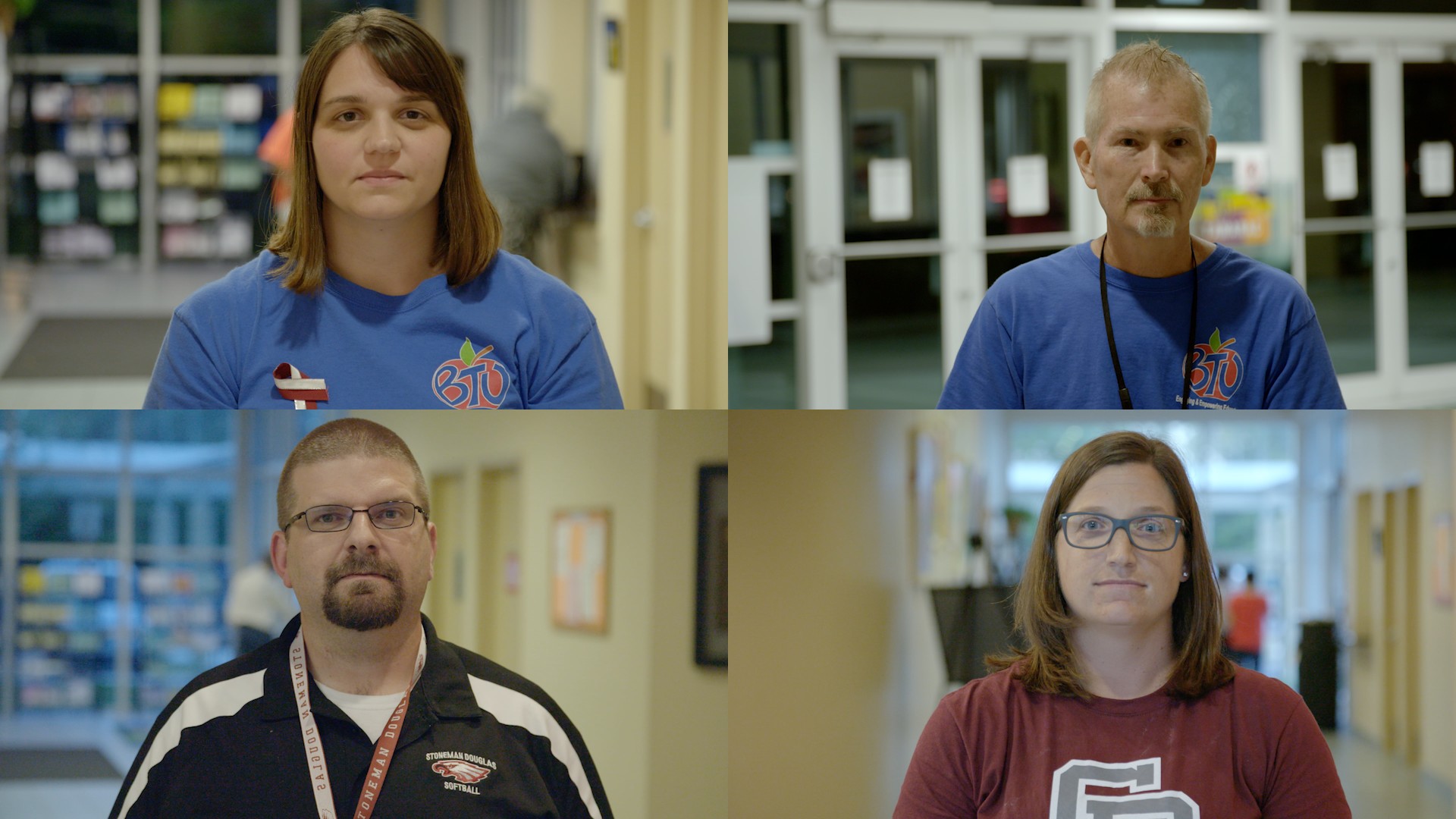In response to Sunday’s mass shooting at a video game tournament in Jacksonville, Florida, Gov. Rick Scott offered a familiar message. “We have got to change,” he told reporters. “We’ve really got to stop and say to ourselves: There’s something wrong.”Alleged gunman David Katz, a 24-year-old from Baltimore, fired on his fellow “Madden NFL 19” contestants after he was eliminated from a round of an eSports tournament, and then turned the gun on himself. Three people were killed besides Katz, and another 10 were transported to a hospital and treated for gunshot wounds.With that, Florida yet again made headlines for a mass shooting, one that presents a complicated issue for Scott, a Republican running for the U.S. Senate this fall, who has seen mass shootings at the Pulse Nightclub in Orlando, the Fort Lauderdale Airport, and Marjory Stoneman Douglas High School in Parkland unfold on his watch.After the Parkland shooting this past February, which left 17 students and teachers dead, Scott promised “everything was on the table” when it came to reforming the state’s gun laws, including a possible ban on assault weapons (which was supported by 62 percent of Floridians, according to a poll by Quinnipiac University at the time).In the end, Scott signed a gun reform bill that was opposed by the National Rifle Association. It did the following:As governor, Scott ushered in or backed some of the state’s most expansive gun laws.It’s quite possible that no Florida gun law would have stopped Katz, who was armed with two handguns, he’d purchased legally in Maryland. Nonetheless, the shooting has cast renewed scrutiny on what critics say is Scott’s and state lawmakers’ failure to substantively address gun violence in Florida.Read: Here's what we know about the Madden 19 mass shooter: "He wasn't here to make friends"Indeed, what’s notable about the Jacksonville shootings is how typical they are. The prior night one person was killed and two injured during a shooting after a high school football game in Jacksonville.What no Florida Republican wants is for mass shootings to be on voters’ minds in November. Scott, who boasts an A+ rating from the NRA, has attempted to distance himself from the organization as he attempts to unseat Florida Sen. Bill Nelson, a Democrat. After delivering a passionate speech at the NRA’s convention in 2017, he didn’t even show up to this year’s event.The NRA hasn’t directly donated money to Florida state lawmakers since 2005, according to the Sun Sentinel. Between 2005 and 2010, the NRA funnelled donations to lawmakers through the Republican Party of Florida or campaign committees, but stopped after 2010 (pouring money instead into television, radio and internet advertisements). Scott’s campaign for U.S. Senate has not directly accepted donations from the NRA.The political quagmire surrounding gun rights in Florida is playing out in the race to fill Scott’s seat in Tallahassee. On Sunday evening, Republican candidates for governor Adam Putnam and Ron DeSantis cancelled their events in Jacksonville, both of which were slated for Monday. Meanwhile, all four Democrat candidates traveled to Jacksonville to rally voters on the issue of gun control Monday, on the eve of the primary elections.“I am horrified and I am furious,” tweeted former Miami Beach Mayor Philip Levine on Sunday, who is among the Democrats running for Florida governor. “The shootings are too many to count—in our schools, neighborhoods and nightclubs. Too many lives are destroyed, while leaders take no action. It's time for new leaders.”Cover: Florida Governor Rick Scott speaks to supporters as he makes a campaign stop at Chico's Cuban Restaurant where he received an endorsement from the Florida Police Chiefs Association on June 14, 2018 in Hialeah, Florida. Gov. Scott, a Republican, is running for a Florida Senate seat against current Democratic Senator Bill Nelson (D-FL). (Photo by Joe Raedle/Getty Images)
Advertisement
- Raised the minimum age for gun purchase to 21 from 18.
- Created a three-day waiting period for for gun purchases.
- Banned the sale of bump stocks, which allow semi-automatic weapons to fire automatically.
- Enacted a “red flag” law that seeks to keep guns out of the hands of people who are a threat to themselves or others. That law was enacted in March, and by the end of July, 467 Floridians had been ordered to surrender their guns.
Advertisement
- In 2011, he signed a bill that blocks localities from passing their own gun control laws (In April, 10 cities signed a lawsuit challenging that law).
- Scott cut the cost of concealed carry permits three times between 2012 and 2017, and signed a law allowing people to carry concealed firearms without a permit during state emergencies.
- In 2017, Scott signed a bill expanding the state’s controversial “Stand Your Ground” law, shifting the burden of proof from defense attorneys to prosecutors. The changes to that law were recently spotlighted when a white man shot and killed a black man in front of his young children amid a dispute over a parking space.
Advertisement
